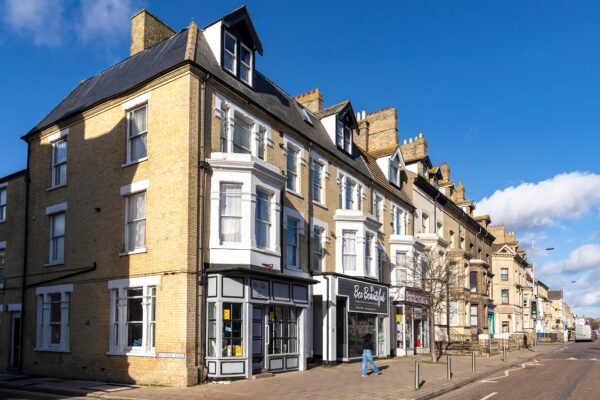In what circumstances, if any, is it appropriate to imply a term into a lease that prohibits a tenant from using the demised premises for an illegal purpose? That was the issue in Assethold Ltd v Interface Properties Ltd [2024] UKUT 371 (LC).
Tim Polli to appear in the Supreme Court

The Supreme Court has granted Permission to Appeal to Miss Menelaou, the unsuccessful Respondent in Menelaou v Bank of Cyprus v Boulter & Co (A Firm) [2014] 1 WLR 854; [2013] EWCA Civ 1960.
M’s parents agreed with the Bank that their existing house (Rush Green Hall), over which the Bank had legal charges to secure the parents’ borrowing, would be sold; that, with some of the sale proceeds, a new house (Great Oak Court) would be bought in the name of their daughter, M; and that the Bank would have a legal charge over Great Oak Court as security for M’s parents’ borrowing.
The sale of Rush Green Hall and the purchase of Great Oak Court completed. M subsequently asserted that she had not signed the legal charge over Great Oak Court and brought a claim seeking the removal of the legal charge from the registered title.
The Bank, which was represented both at trial and before the Court of Appeal by Tim Polli, joined the solicitors who had acted for it in the mortgage transaction, Boulter & Co, as part 20 defendants to a professional liability claim; but also counterclaimed against M on the basis that, if the charge was void, the Bank was entitled to be subrogated to an unpaid vendor’s lien over Great Oak Court.
At trial, it was conceded by Boulter & Co in the part 20 claim (and, consequently, by the Bank in the main claim) that the legal charge was void. The Bank’s part 20 claim therefore succeeded. The trial judge dismissed the Bank’s counterclaim, however, on the grounds that the Bank had not provided the money with which the unpaid vendor’s lien had been discharged and that any enrichment of M (by the discharge of the unpaid vendor’s lien) had not been at the Bank’s expense.
The Bank appealed to the Court of Appeal, and was successful. The Court of Appeal held that, even though the Bank had not directly provided the moneys deployed to pay for Great Oak Court, there was nevertheless a sufficiently close causal connection between the Bank’s agreement to release its charges over Rush Green Hall and the purchase of Great Oak Court to justify the conclusion that there had been a transfer of value from the Bank to M. M had therefore been enriched at the Bank’s expense and the Bank was entitled to be subrogated to the unpaid vendor’s lien over Great Oak Court. The Court did not, therefore, have to determine whether the Bank had any beneficial interest or security in the proceeds of sale of Rush Green Hall.
The Supreme Court has now granted M permission to appeal. The issues arising on appeal may include:
- What rights (if any) mortgagees have in the proceeds of sale of properties over which they have (but have agreed to release) legal charges;
- The extent to which the remedy of subrogation may be awarded even though the enrichment may not have been at the direct expense of the lender; and
- What test should be applied when determining whether a third party has been enriched at a lender’s expense and, in particular, whether the lender needs to show that it retained a proprietary interest in the money with which the prior discharged security (to which it is claiming to be subrogated) was discharged.






